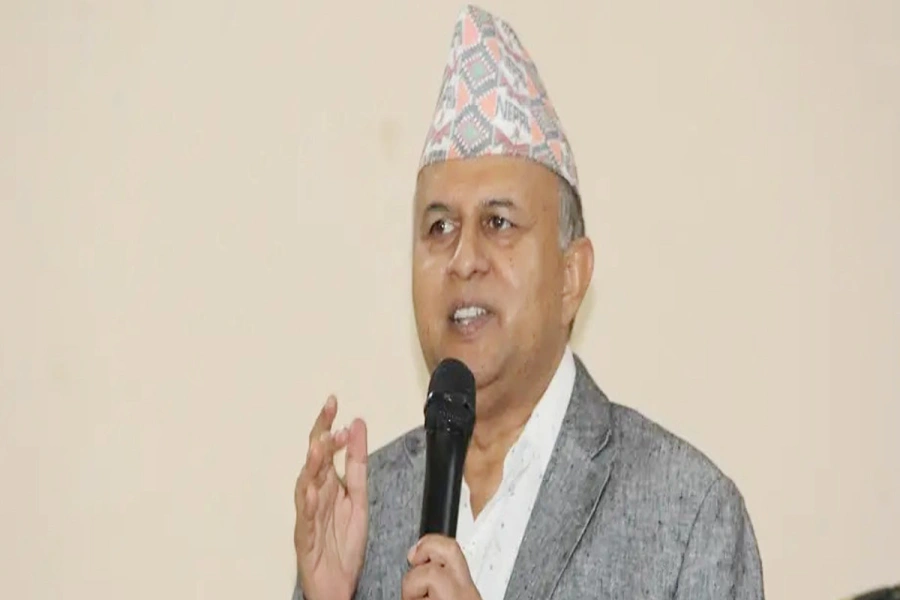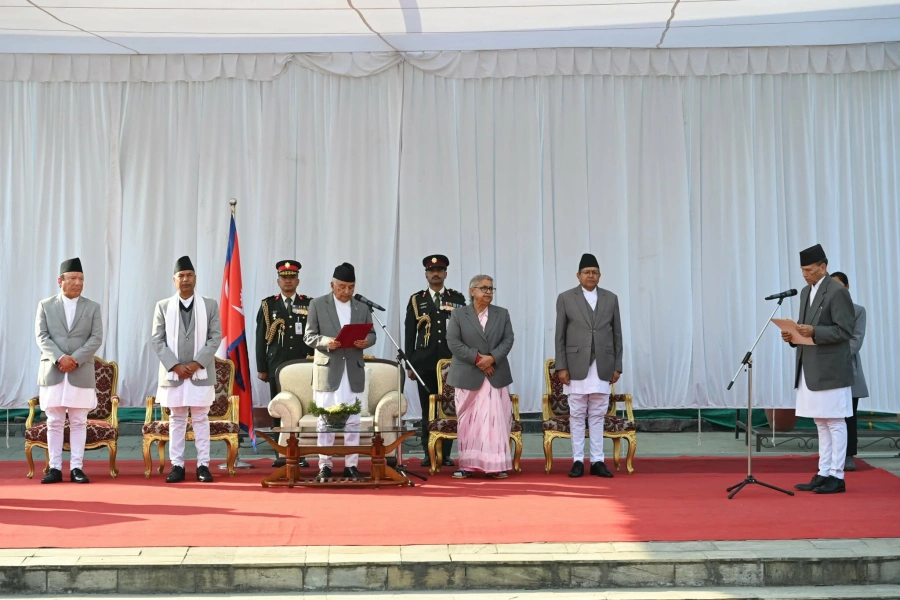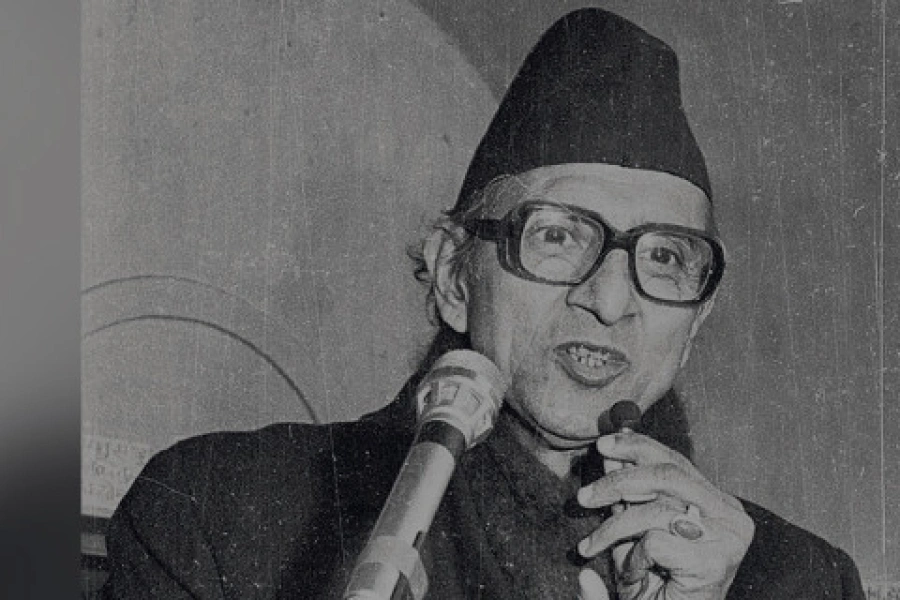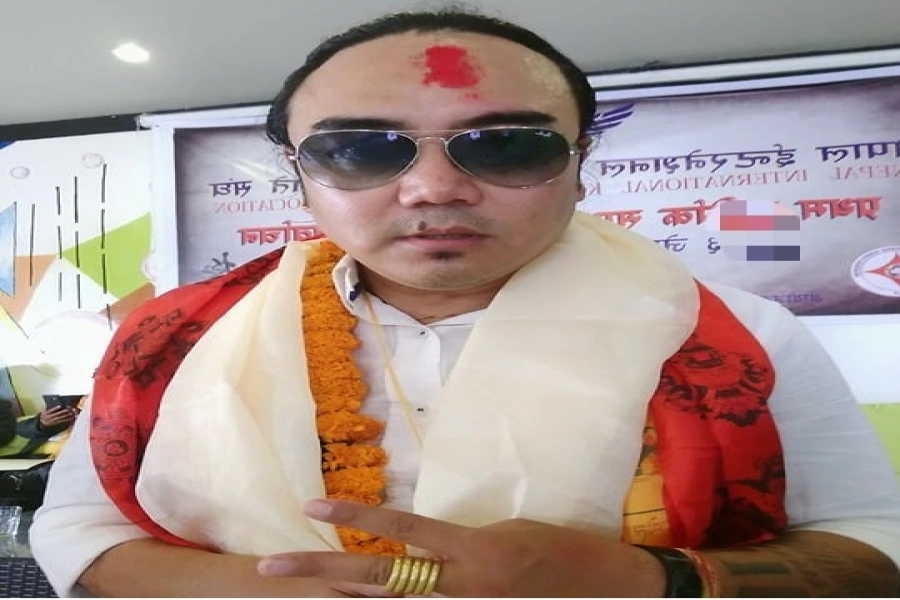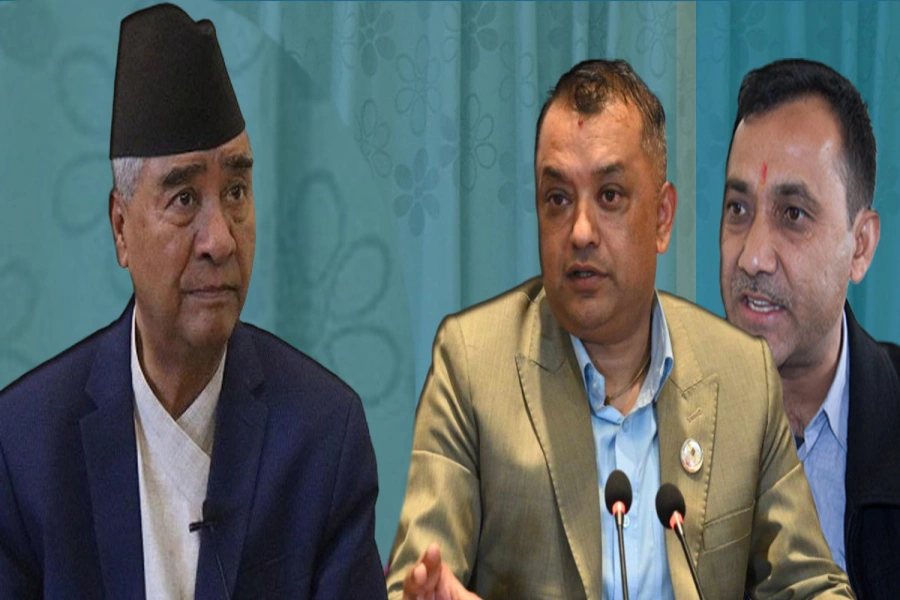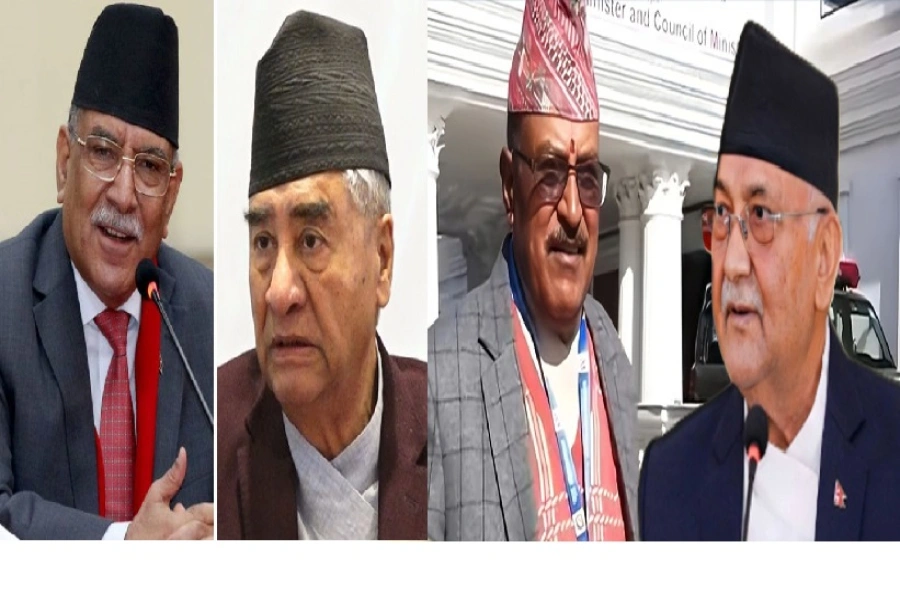“You want to play this bicycle?” asks his babysitter Renu Thapa Dhakal, as she helps him with his shoes. While Luka absentmindedly cycles away, the members of the house gather around him in the winter sun—Binod Rana, the gardener; Shobha Kumari Sunuwar, the housekeeper, and Resham Thapa, the guard.
In a society where the work of a domestic helper is considered lowly, and employees are underpaid, discriminated, and ill-treated, these four individuals represent the Nepalis who are part of a different economic enterprise in Kathmandu Valley unknown to many. This is rather an exclusive network of domestic helpers working for expatriate families who can afford to hire a staff with specialized divisions of labor.
 Clockwise from top left: Shobha Kumari Suniwar, Resham Thapa, Renu Thapa Dhakal and Binod Rana.
Clockwise from top left: Shobha Kumari Suniwar, Resham Thapa, Renu Thapa Dhakal and Binod Rana.Chandra Shekhar Karki
NMA calls for immediate action to save hunger-striking Nicolas

“I only look after the children,” says Renu, who leaves her own seven-month-old son at home to look after Luka and Asmara, Wayne and Ruth’s three-year-old daughter, during the day. “I work from 8 am to 5 pm, and because I have a child of my own, I don’t baby-sit at night. There’s a different didi who comes in, upon request, after I leave,” informs the 29-year-old mother. While she has been working with the couple for only a month, her journey in the babysitting profession began years back.
In 2000, Renu got an opportunity to go to the Netherlands where she worked for a year as a babysitter. Her year-long experience there enabled her to obtain babysitting jobs in Kathmandu, and she has worked with more than four families till date.
“It’s very different working with foreign families because they don’t treat us as servants but as someone equal,” she says, occasionally interjecting the conversation to check upon Luka: “Do you want biscuit, Luka?” Originally from Butwal, Renu is a quick learner, and her English is very impressive for someone who never went to school.
As a babysitter, Renu takes the children to different activities of the International Playgroup which consists of expats’ kids from the area and other parts of Kathmandu.
“There are programs from singing to swimming to which we accompany the children,” she explains.
Some domestic helpers with years of experience have the privilege of demanding high salaries, and there are people who earn as high as Rs 18,000 per month. Renu and Shobha, whose work as housekeepers includes cleaning, cooking and ironing, earn the same salary of Rs 10,000 per month.
“I’m happy that Madam (Ruth) gave me a chance to work here even though I don’t have good English, and my work is fairly easy,” says Shobha, 31, who has been working with the couple for two years now. “My husband isn’t doing too well in Dubai. And at least, with my job, I’ve been able to send our four-year-old son to school,” she expresses.
Shobha, originally from Ramechhap, has also spent time abroad, in Kuwait and Lebanon, where she worked as a babysitter. She was recommended to the current family as a housekeeper by her previous employers in Kathmandu.
“For someone like me who didn’t get the opportunity to study, this job is more than I could’ve asked for,” apprises Resham, 47, who is employed as a guard by Oxfam Nepal—a UK-based organization which works for poverty alleviation—where Wayne holds the position of Country Director.
“As per my skills and abilities, I’m happy with my job,” says Resham with a satisfied smile. He came to Kathmandu more than 20 years back from Hetauda, and lives nearby and visits the house even when he is off duty.
Earning Rs 7,000 per month is the fourth and youngest staff member, 24-year-old Binod Rana, from Makwanpur.
“I look after the garden, the kitchen garden, the chickens, and also guard the house at night,” says the young man, who recently enrolled in Grade 11 at the Patan Multiple Campus to continue his studies. “We get day offs on Saturdays and Sundays which gives me plenty of time to study, or go out to meet friends,” he adds. Unlike the rest, Binod lives within the premises of the walled compound, and he doesn’t have to worry about paying rents and utility bills.
Besides their monthly salaries, the four are also fortunate to enjoy benefits that several white-collar jobholders have.
“If we show our medical bills, they will reimburse us for the expenditures,” explains Renu and adds, “Sometimes when it gets too late, I may have to take a taxi home, and I receive compensation for that as well.”
If Renu or Shobha gets called upon without notice in advance, they are paid for the extra hours.
Their employers also allow them to use the Internet once a week. But because none of them are computer literate as of yet, they haven’t used the facility.

****
Ruth and Wayne came to Nepal two years ago after Wayne was hired by Oxfam. But this is not their first time living abroad. From East Timor to East Africa, the couple has been out of Australia for the past 15 years.
“We decided to come here because we now are a small family, and we thought it would be good to raise our children in Nepal,” explains Wayne, sharing that Luka was born after they came to Kathmandu. Ruth started working only recently at the International Center for Transitional Justice.
“We can’t afford to hire such a big staff back home in Australia,” he honestly admits to Republica and adds, “But our lifestyle is also different there because we have our parents and relatives to take care of our children, in addition to childcare services.”
When asked if he was aware of the facilities that he is providing to his employees, which is beyond the norm in Nepal, he replies, “We’re like a big family here, and we make sure that they feel at home.”
Every Friday afternoon, Binod Rana, Shobha Kumari Sunuwar, Renu Thapa Dhakal, and Resham Thapa sit together for a weekly ritual of eating a nice meal of dal-bhat and masu like many Nepali families do on a Saturday. They have indeed created a family, besides their own, in the house where they all work together.
****
Expatriate Community Services in Kathmandu
Binod was already working at the house when Ruth and Wayne moved in, and the couple hired Shobha and Renu through the help of friends and network of their previous babysitter. Along with the informal network of domestic helpers made through interactions at playgroups, one of the main providers of such services is Expatriate Community Services (ECS), which was established in 1998.
“ECS provides all kinds of training to people such as cooking, housekeeping, gardening, childcare and hygiene,” informs Ram Devi Ranjit Shrestha, the Director of ECS Activities. Besides the trainings that happen throughout the year, ECS also receives applications of jobseekers as well as clients who are looking to hire domestic helpers. The service provider also conducts interviews for clients, and charges a minimum fee when they have matched clients with employees.
“Most of our clients are foreign families, but we’re slowly getting Nepali families as well,” she says and continues, “However, most people don’t want to work with the latter because of the way Nepali families treat them as servants.”
The number of applications ECS has at one time range from 300 to 700. “One of our goals at ECS is to bring a change in the attitude of employers and employees so that this profession becomes a respectable one,” asserts Shrestha.









